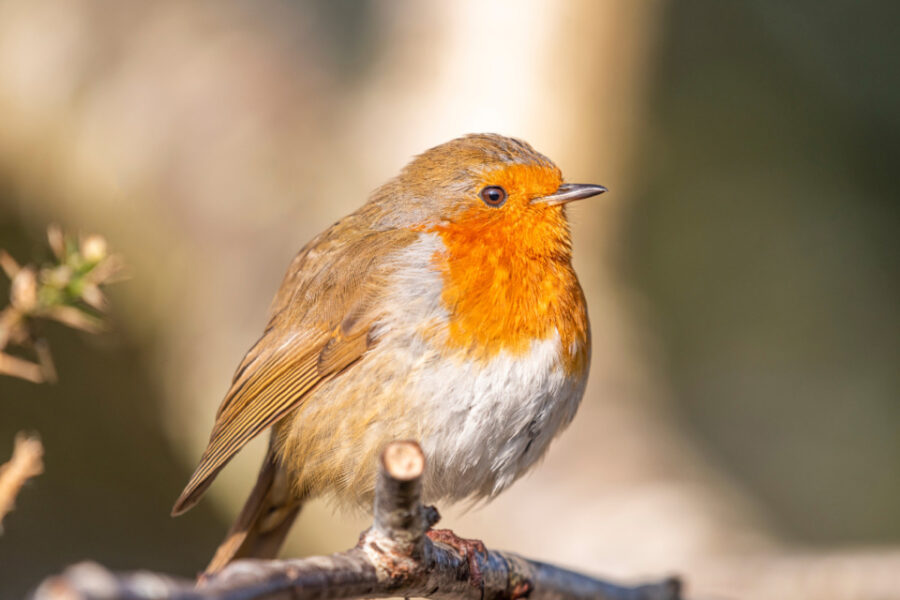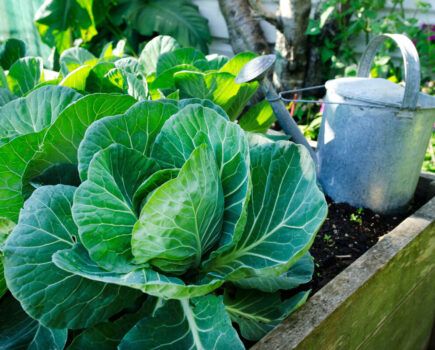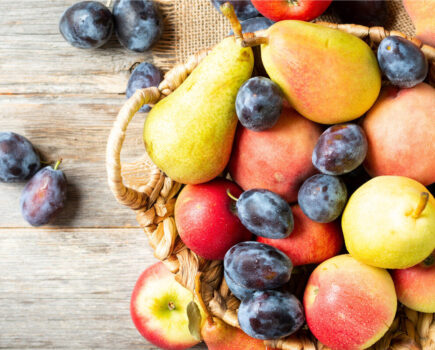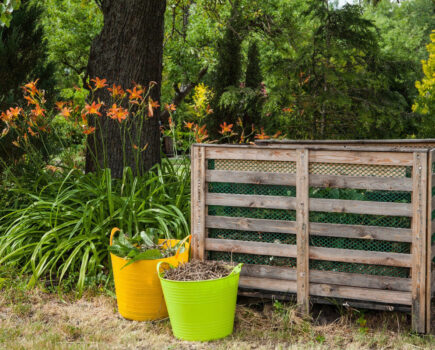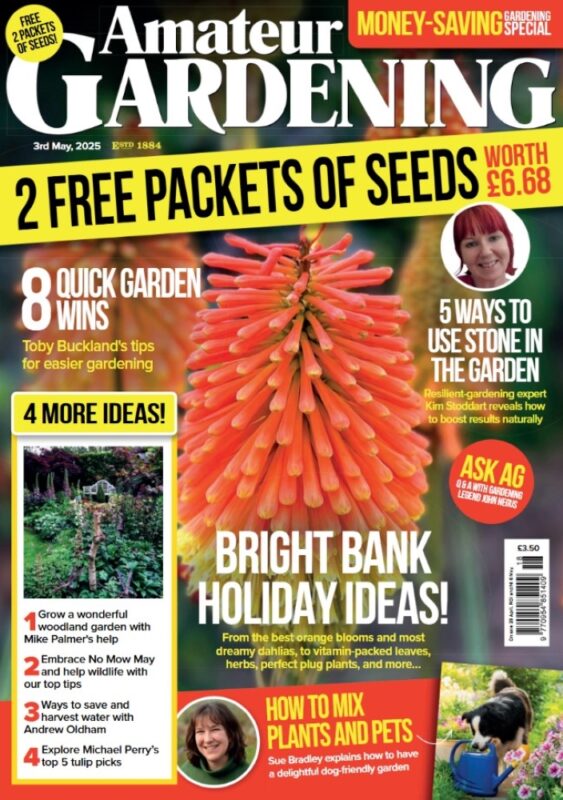The RSPB reveals more about this radiant and really popular bird
Bird of the Month – Robin
What could be more Christmassy than a robin? The lovely flash of orangey-red around your garden that’s so synonymous with this time of year. But there’s much more to our robins than Christmas cards and tree decorations!
They’re extremely territorial for one. Whilst they appear cute and friendly to us – often bold enough to come very close when the chance of a stolen crumb, or when a newly revealed garden worm is involved – they are anything but to other robins thinking of encroaching on their patch.
Their first line of defence is singing – often up high with their chest puffed out to look as intimidating as possible. This may draw humans in even more but can be enough to put a potential invader off, but should they still venture into the territory being defended, then the other bird will attack, and the fights can unfortunately be brutal.
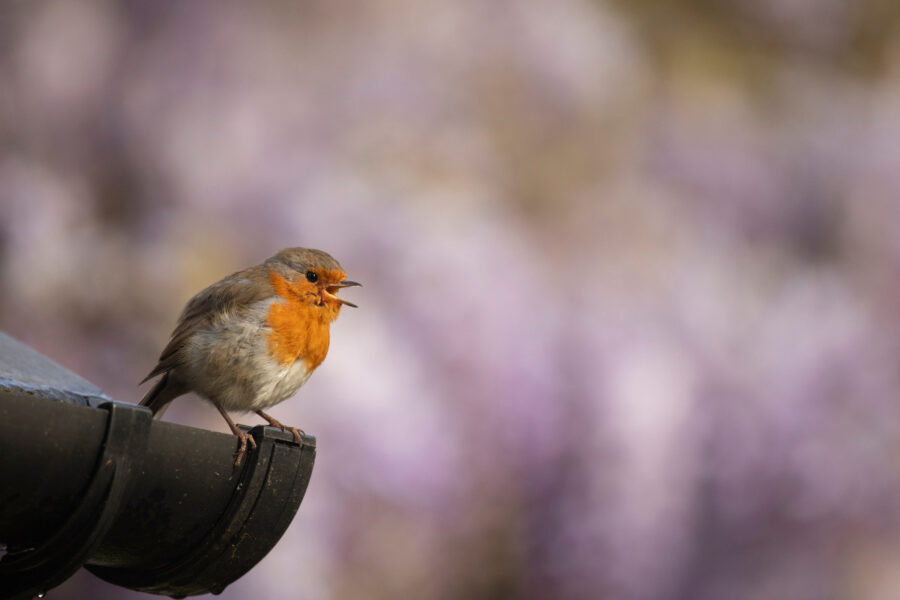
Singing all year round
This kind of behaviour is heightened in springtime when most birds are busy finding the best nesting spots and mates, but for robins, they defend a territory all year round. This is why they are one of the few birds who can still be heard singing in the depths of winter – even at Christmas, which probably goes a long way to explaining their close association, along with their distinctive red breasts.
Stories involving robins show the link to winter festivities began well before Christianity and carried on through the ages in various guises. They’ve always been popular images on Christmas cards since the Victorians first began sending them, and even today, you’ll find plenty in our RSPB shop!
They’re often dubbed ‘the gardener’s friend’ because they always seem to be nearby when you’re doing jobs outside and don’t appear to be afraid of us. Originally woodland birds, they were used to following large mammals around, knowing that animals such as wild boar would unearth worms and other invertebrates with their snouts and disturb the ground with their hooves, so providing some easy meals to be picked up by the birds. We do the same when we dig and potter in the garden!
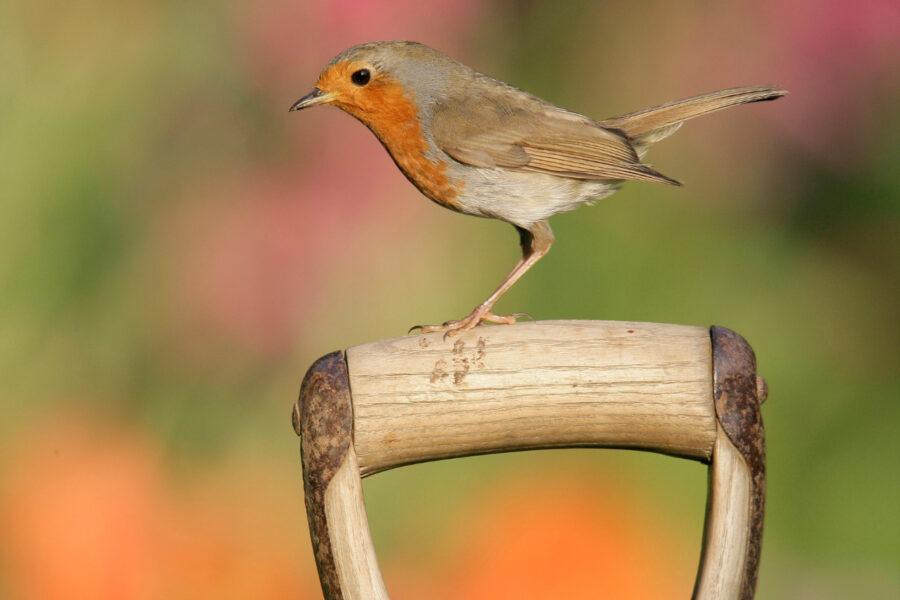
“They’re often dubbed ‘the gardener’s friend’ because they always seem to be nearby when you’re doing jobs outside and don’t appear to be afraid of us.”
Top tip
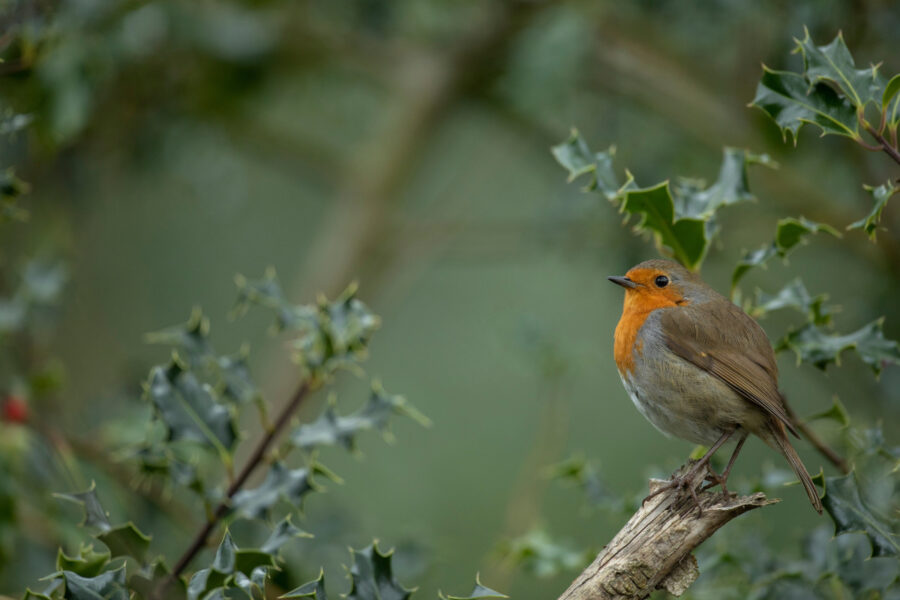
CREDIT Ben Andrew RSPB Images
Plant a holly bush in your garden to keep your robins happy. They are often pictured alongside holly because of the Christmas association, but they also do really like holly berries, so it’ll provide a good source of food in winter as well as some evergreen colour for your garden. You could also add a log pile in a quiet corner to attract more invertebrates, helping robins and a range of other insect-eating birds.
Q&A
Q. What can I do to help birds when the weather turns really cold?
A. Having some thick shrubs for them to roost in which offer plenty of cover will really help, as will having some nestboxes around your garden. Having a variety of different berry-bearing plants in your garden is also really helpful, providing plenty of natural food when cold spells strike. A fresh water source is essential. You can keep it ice-free by putting in a floating ball (such as a ping pong ball) but never put any additives in. Change the water daily and clean the container at least once a week.
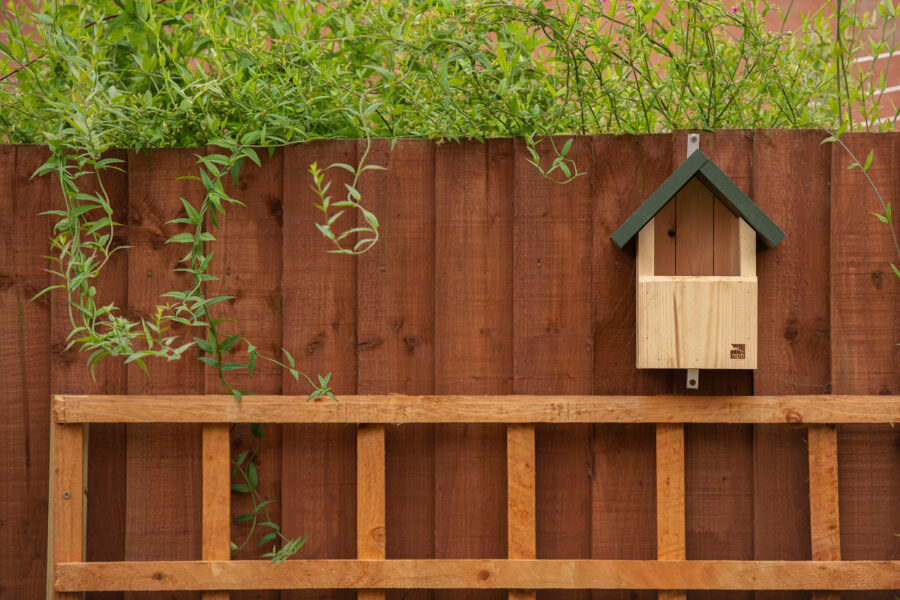
CREDIT Ben Andrew RSPB Images
Q. Will I see fewer birds in my garden if it snows?
A. It’s difficult to predict, depending on where you live, but you could actually see more! Snow may make it difficult to access normal food sources, forcing birds to venture into new spaces, sometimes gardens. This can apply to farmland birds like reed buntings and yellowhammers, or birds like pied wagtails, which normally prefer more open spaces.
……………….
For more information about robins and how to help them and other garden birds this winter visit www. rspb.org.uk
You can now register for Big Garden Birdwatch 2025! It’s easy to do and fun to take part! Find out more at www.rspb.org.uk/birdwatch
Find more tips, advice and articles like this at the Amateur Gardening website. Subscribe to Amateur Gardening magazine now

